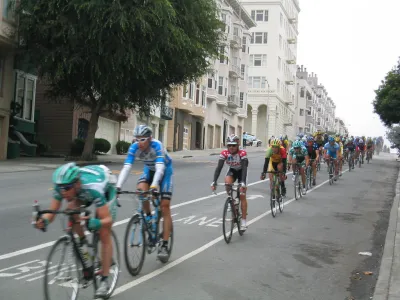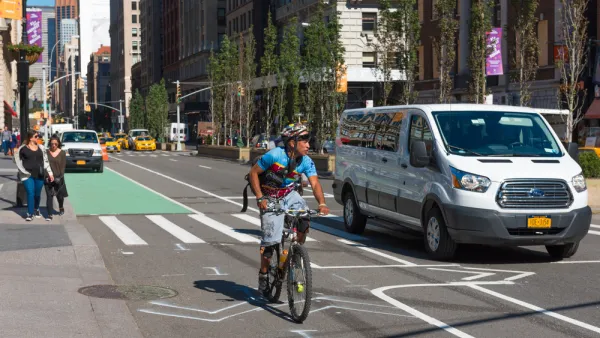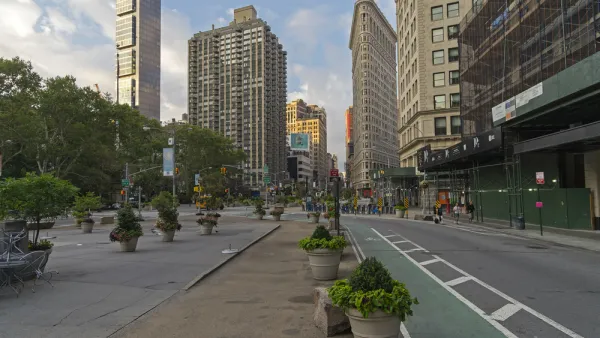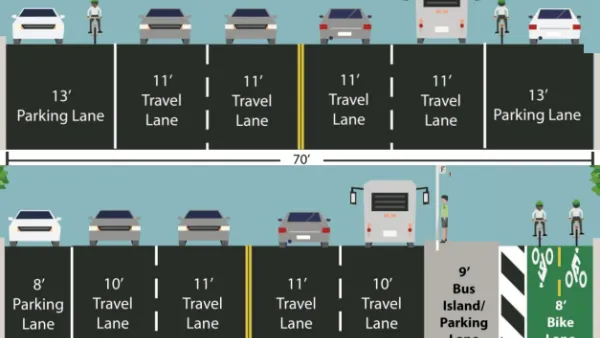Urban bike infrastructure is plagued by three related problems: design, politics, and security.

Slate writer Henry Grabar blasts cities for bike networks that leave cyclists unsafe and uninspired. Drawing on his experiences as a bicycle commuter in New York, he illustrates common "design flaw[s]" that are "born of politics but compounded by disinterested policing."
On the design front, Grabar describes bike lanes that are poorly protected from traffic and paths that end abruptly, creating gaps in the system: "The network is only as strong as its weak points, which can be very weak."
He attributes those weak points to the fact that power over New York’s bike lanes goes to community boards—resulting in a patchwork governance process that de-prioritizes holistic planning:
Transportation planning is the quintessential issue that should not be left to local determination. But bike lanes, for some reason, are subject to the whims of neighborhoods.
Nor, he suggests, can New Yorkers expect action from the police on cars that park or drive in unprotected bike lanes, forcing cyclists to swerve into traffic or ride on the sidewalk.
"If the NYPD can’t keep the lanes clear, there’s no point in having them," he writes.
FULL STORY: Why Bicycling Infrastructure Fails Bicyclists

Analysis: Cybertruck Fatality Rate Far Exceeds That of Ford Pinto
The Tesla Cybertruck was recalled seven times last year.

National Parks Layoffs Will Cause Communities to Lose Billions
Thousands of essential park workers were laid off this week, just before the busy spring break season.

Retro-silient?: America’s First “Eco-burb,” The Woodlands Turns 50
A master-planned community north of Houston offers lessons on green infrastructure and resilient design, but falls short of its founder’s lofty affordability and walkability goals.

Test News Post 1
This is a summary

Analysis: Cybertruck Fatality Rate Far Exceeds That of Ford Pinto
The Tesla Cybertruck was recalled seven times last year.

Test News Headline 46
Test for the image on the front page.
Urban Design for Planners 1: Software Tools
This six-course series explores essential urban design concepts using open source software and equips planners with the tools they need to participate fully in the urban design process.
Planning for Universal Design
Learn the tools for implementing Universal Design in planning regulations.
EMC Planning Group, Inc.
Planetizen
Planetizen
Mpact (formerly Rail~Volution)
Great Falls Development Authority, Inc.
HUDs Office of Policy Development and Research
NYU Wagner Graduate School of Public Service




























